Hello! Have you ever experienced the situation in which you have been just trying to sit still and finish your day while your brain was working like if you were in a marathon? Perhaps you are the person who lost their keys three times this week or you are the person who got lost into dreaming in the middle of a conversation once more. If these words are something you know from life, you should be relieved to know that it is not only your problem, and there is a cause for it. What I mean is adult ADHD which is much more prevalent than most people realize. It’s no longer a children’s business, it’s now part of the everyday life of millions of elderly people, and it might be just the reason behind those strange, puzzling moments you’ve been neglecting.
Similarly, I faced a situation where I was running to and fro to find the reason why I couldn’t manage even the simplest things such as remembering to pay a bill or completing a project without being distracted by a hundred other thoughts. The surprise is that adult ADHD may have been the actual reason. So, let’s get together for a meeting over coffee and find out what adult ADHD is, what it looks like, and how it is reflected in your behavior. My aim is to make you feel recognized, empathized with, and maybe even a bit thrilled to hear from me about this. Is that okay? Shall we start?
What’s Adult ADHD All About, Anyway?

Okay, picture this: your brain is like a busy little beehive, buzzing with thoughts, ideas, and distractions, all while you’re trying to focus on just one thing. That’s kind of what adult ADHD—Attention Deficit Hyperactivity Disorder—can feel like. It’s not about being a kid who can’t sit still (though that’s part of it for some). For adults, it’s more like an internal restlessness, a mind that’s always “on,” even when you’re begging it to take a break.
Here’s the deal: ADHD is a neurodevelopmental condition, which is a fancy way of saying it’s about how your brain is wired. It affects things like focus, impulse control, and even how you handle emotions. And get this—it doesn’t just pop up out of nowhere when you hit 30. If you’ve got it now, it’s been with you since childhood, even if no one put a name to it back then. The difference? Adult life—work, bills, relationships—throws a spotlight on those symptoms, making them harder to ignore.
But don’t worry, this isn’t about labeling you as “broken.” It’s about understanding yourself better. Think of it like finding the user manual for your brain—once you’ve got it, you can start figuring out what works for you. So, what does adult ADHD actually look like? Let’s break it down.
What Are the Telltale Signs of Adult ADHD?

Adult ADHD isn’t always attention, it can sometimes be like one of those “penny” issues that do not make a lot of noise but they stress you out every day. The majority of the symptoms are classified into three gangs: not paying attention, hyperactivity, and impulsivity. You either might have marked a few of those in you, or you’re just wondering. Anyway, let’s explore them together and find out what is relevant in this situation.
Finding It Hard to Concentrate: The Inattention Signals
Have you ever got the feeling that your focus is like a butterfly that is fluttering around from one flower to the other and never stopping at one for long? This is an example of inattention. Here is the story of how it might get expressed:
- Can’t stay on track: You start writing an email, but five minutes later, you’re googling “best coffee shops” instead.
- Forgetting the little things: Keys? Phone? That meeting at 2 p.m.? They all seem to vanish from your radar.
- Chaos everywhere: Your desk looks like a tornado hit it, and your schedule’s no better.
- Procrastination station: You know you need to start that project, but somehow, it’s still “tomorrow’s problem.”
- Time slips away: You’re late again because you totally misjudged how long breakfast would take.
- Dreading the details: Taxes, long emails, anything that needs focus—yep, you’d rather avoid it.
Sound familiar? I used to beat myself up over this stuff, thinking, “Why can’t I just get it together?” But here’s the kicker: it’s not about willpower—it’s about how your brain works.
Restless Vibes: The Hyperactivity Signs
Hyperactivity in adults isn’t climbing the walls (usually). It’s more like an engine that won’t turn off. Check these out:
- Always fidgeting: Tapping your pen, bouncing your leg—sitting still feels impossible.
- Chatty Cathy: You’re talking a mile a minute, sometimes cutting people off because your thoughts won’t wait.
- Can’t unwind: Even Netflix can’t quiet the buzz in your head.
- Jumping between tasks: You’ve got three half-finished projects because starting feels so good.
It’s like your mind’s a popcorn machine—pop, pop, pop—ideas and energy just keep coming. Exhausting, right? But also kind of cool when you channel it.
Acting on Impulse: The Impulsivity Signs
Impulsivity is like your brain hitting “send” before you’ve finished writing the email. Here’s how it might show up:
- Blurting it out: You interrupt because waiting your turn feels like forever.
- Quick decisions: That shiny new gadget? Bought it. That job? Quit it. Oops.
- No patience: Lines, slow talkers—ugh, why can’t things move faster?
- Risky moves: Speeding, spontaneous trips—sometimes it’s fun, sometimes it’s trouble.
I’ve had my share of “Why did I do that?” moments—like the time I impulse-bought a ukulele I still don’t know how to play. It’s all part of the ADHD adventure!
Not everyone has all these symptoms, and they can look different for everyone. But if you’re nodding along, it might be worth a closer look. What do you think—any of these hitting home?
How Does Adult ADHD Shake Up Your Life?

Living with adult ADHD is like trying to herd cats while riding a unicycle—it’s a lot, and it touches everything. Let’s see how it might be playing out in your world.
Work: A Rollercoaster of Brilliance and Chaos
At work, ADHD can be a double-edged sword. You might be the idea machine, sparking creativity left and right, but then the follow-through? That’s where it gets tricky. Deadlines slip, meetings blur, and that inbox? A total disaster zone. I once had a boss tell me I was “so smart but so scattered”—and ouch, that hit hard. But here’s the flip side: some ADHD folks shine in fast-paced jobs where quick thinking is king. It’s all about finding your sweet spot.
Relationships: Love with a Side of Oops
In relationships, ADHD can stir up some hiccups. Forgetting your partner’s big day or zoning out mid-story doesn’t exactly scream “I care.” But it’s not about that—it’s your brain doing its thing. A friend of mine with ADHD started using a shared calendar with her husband, and it was a game-changer. Little tweaks like that can show the people you love that you’re trying, even when your mind’s a whirlwind.
Self-Worth: The Silent Struggle
Here’s where it gets real: ADHD can mess with how you see yourself. When you’re always dropping the ball, it’s easy to think, “What’s wrong with me?” I spent years feeling like I was failing at “adulting,” until I realized it wasn’t me—it was my ADHD. Knowing that lifted a weight off my shoulders. It’s not a flaw; it’s just a different way of being. And you? You’re not less—you’re just wired uniquely.
Here’s the silver lining: ADHD also brings gifts. Creativity, energy, a knack for thinking outside the box. It’s about balancing the tough stuff with the magic you bring to the table.
How Do You Figure Out If It’s Really ADHD?

So, you’re wondering if this might be you. How do you know for sure? It’s not like you can just Google “Am I ADHD?” and call it a day (though, let’s be honest, we’ve all tried). Getting a real answer takes a little more digging, but it’s so worth it. Let’s walk through it.
Can You Spot It Yourself?
You can absolutely start by tuning into your own patterns. There are tools out there—like the Adult ADHD Self-Report Scale (ASRS)—that ask questions about your habits. Are you always late? Do you lose stuff constantly? It’s a good first step to see if ADHD might be in the mix. But heads-up: it’s not the full picture. Think of it like a teaser trailer—you’ll need the whole movie from a pro to know what’s up.
What’s the Official Process Like?
A professional evaluation is where the magic happens. Here’s what you might expect:
- Your story: They’ll ask about your life—symptoms now, how you were as a kid, the works. (Pro tip: old report cards can be gold here!)
- Checklists: You might fill out forms to rate how often you space out or act on impulse.
- Other possibilities: They’ll make sure it’s not something else, like anxiety or even high-functioning anxiety (yep, that’s a thing—check out those 7 signs of high-functioning anxiety if you’re curious).
Fun fact: according to the National Institute of Mental Health, about 30% of adults with ADHD also deal with anxiety. So, a good doc will untangle all that for you.
What Makes It Official?
The pros use something called the DSM-5 to diagnose ADHD. You need at least five symptoms (from those buckets we talked about) that:
- Have been around for six months or more.
- Started before you were 12.
- Mess with at least two parts of your life—like work and home.
- Aren’t better explained by something else.
It sounds technical, but it’s really about seeing how this stuff affects you. And if you’re nervous about getting checked out? Don’t be. Finding out can feel like finally solving a mystery you didn’t know you were in.
What Can You Do About Adult ADHD?

Alright, say you’ve got the diagnosis—or you’re pretty sure ADHD’s your deal. What now? The good news is, there’s a whole toolbox waiting for you. From meds to therapy to little life hacks, you’ve got options. Let’s explore them together.
Medications: A Boost for Your Brain
Meds can be a big help for a lot of folks. Stimulants like Adderall or Ritalin are the heavy hitters—they sharpen focus and tame that restless vibe. Not into stimulants? There’s stuff like Strattera too. It’s not a cure, but it’s like giving your brain a pair of glasses—things just get clearer. You’ll want to chat with a doctor to find what fits, though—no one-size-fits-all here.
➤ Wondering if your regular doctor can prescribe ADHD meds? Check out Can Your PCP Prescribe ADHD Meds? Let’s Find Out Now!
Therapy: Rewiring Your Approach
Therapy’s where you build skills to wrangle your ADHD. Here’s what works:
- CBT (Cognitive Behavioral Therapy): Helps you flip the script on negative thoughts and habits.
- ADHD Coaching: Like a personal cheerleader for getting organized and hitting goals.
- Support Groups: Swapping stories with others who get it—pure gold.
I tried CBT once, and it was like someone handed me a map to navigate my own chaos. It’s less about fixing you and more about working with what you’ve got.
Lifestyle Tweaks: Small Changes, Big Wins
Don’t sleep on the everyday stuff—it can really move the needle:
- Move your body: Exercise pumps up dopamine, which is like brain food for focus.
- Sleep tight: A solid night’s rest can cut down on the fog and grumpiness.
- Eat smart: Protein and good carbs keep your energy steady—no crash and burn.
- Breathe deep: Mindfulness or meditation can quiet the mental chatter.
I started walking every morning, and wow—it’s like hitting reset on my brain. What could you try?
Tools to Keep You on Track
We’re in the future, friends—tech’s got your back! There are ADHD project management tools like Trello or Asana to break tasks into doable chunks. Apps like Focus@Will use music to keep you in the zone, and Todoist is a lifesaver for lists. I’ve heard folks swear by the Pomodoro technique—25 minutes of focus, then a break. It’s like tricking your brain into cooperating!
Mix and match these until you find your groove. It’s all about what clicks for you.
Living Your Best Life with Adult ADHD
Managing ADHD isn’t just about treatments—it’s about thriving. Here are some tricks I’ve picked up along the way:
- Chop it up: Big tasks feel less scary when you break them into tiny steps.
- Set alarms: Your phone’s your wingman—use it to nudge you.
- Routine is your friend: A simple morning flow can cut the overwhelm.
- Find your spot: Where do you focus best? Claim it.
- Ask for help: Lean on your crew—they want to see you win.
And here’s a big one: give yourself grace. Some days, you’ll rock it; others, you’ll trip. That’s okay. You’re not chasing perfection—you’re chasing progress.
So, where does this leave you? Adult ADHD might feel like a wild ride, but understanding it is like grabbing the reins. Whether it’s spotting symptoms—like that forgetfulness or restlessness—or trying out meds, therapy, or a new app, you’ve got power here. If you’re thinking it might be you, why not talk to someone? A diagnosis could be the key to unlocking a calmer, clearer you.
You’re not alone in this—millions of us are figuring it out too. What’s your next move? Maybe it’s a doctor’s visit, a walk to clear your head, or just cutting yourself some slack today. Whatever it is, I’m cheering you on. Got thoughts or stories to share? Drop them below—I’d love to hear from you!

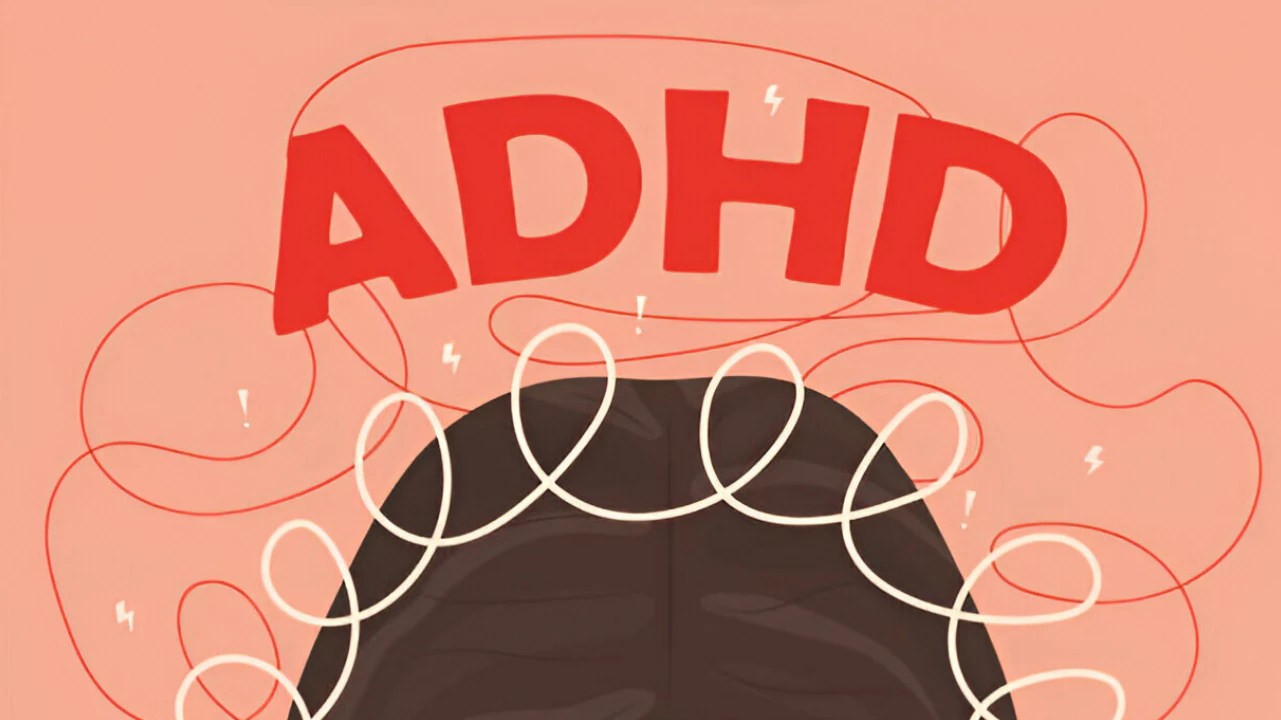


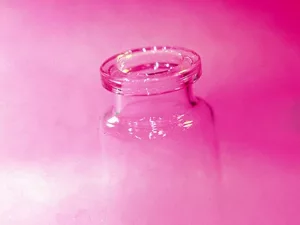


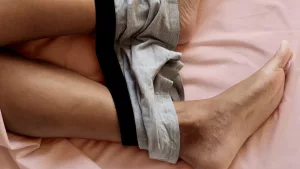
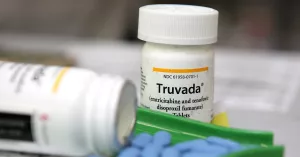

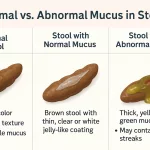

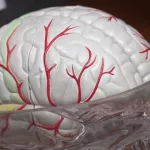





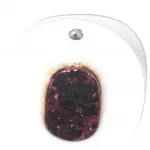
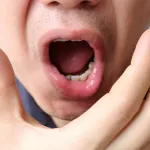




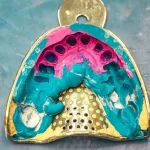
Leave a Reply
You must be logged in to post a comment.